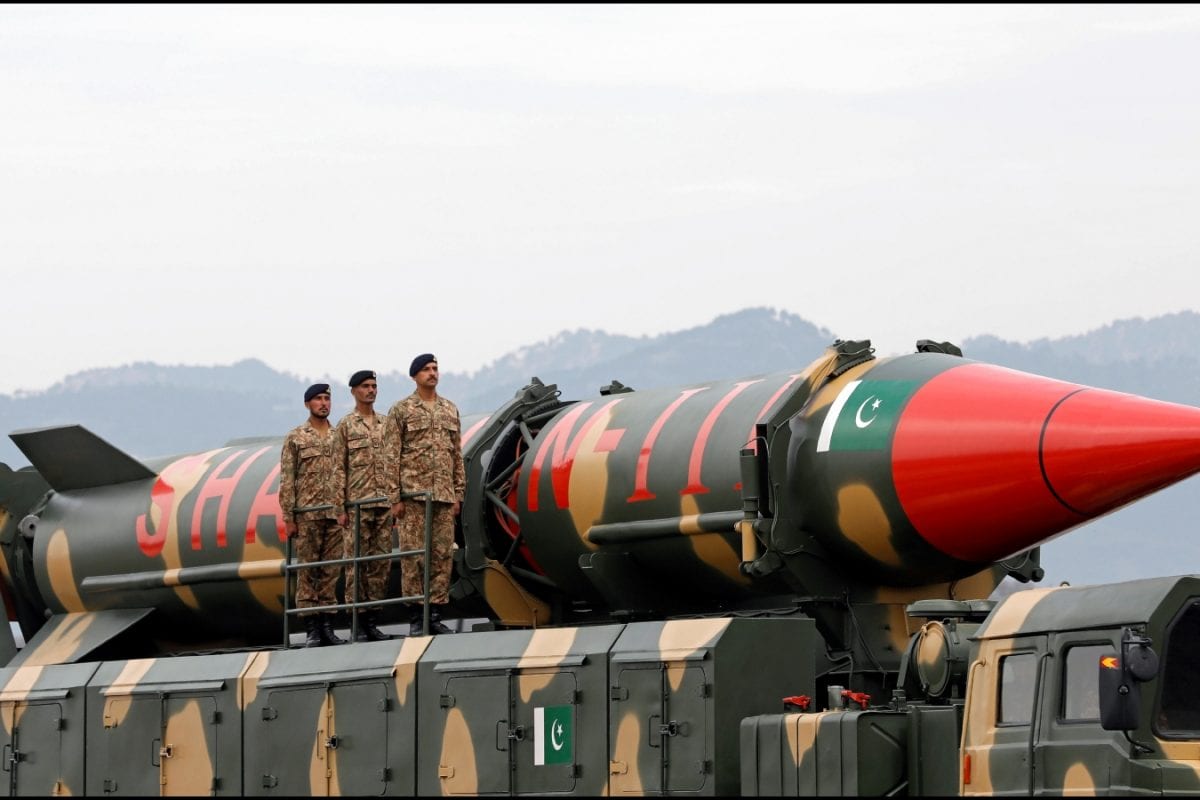

Pakistan is once again under increased scrutiny from the Financial Action Task Force (FATF) for its continued efforts to procure materials for its ballistic missile program, raising serious concerns about proliferation and potential violations of international norms. A recent FATF report highlighted a 2020 incident where Indian authorities intercepted a shipment of missile-related equipment en route to Karachi, exposing Pakistan's use of mis-declared dual-use goods linked to its ballistic missile program. This revelation has put Islamabad on the defensive and could potentially lead to renewed efforts by India to push for sanctions against the country.
The FATF report details how the consignment, linked to Pakistan's National Development Complex (NDC), a state-owned defense and aerospace entity, was disguised in shipping documents. The intercepted cargo ship was carrying autoclaves, specialized equipment used for high-energy materials and missile motor components. The Bill of Lading revealed a direct connection between the importing party and the NDC, a facility known for developing long-range ballistic missiles. The United States had already sanctioned the NDC in December 2024 under Executive Order 13382, which targets proliferators of weapons of mass destruction and their delivery systems.
The global watchdog has expressed concerns regarding the mis-declaration of dual-use goods, emphasizing that such materials can support missile and weapons development programs when exported without proper declarations. The FATF cited the Pakistan-linked case as a prime example of how weak export controls and mis-declarations can lead to violations of international norms, reinforcing concerns about the global trade in proliferation-sensitive goods. The FATF indicated that this incident illustrates how state-linked entities might attempt to bypass regulations by disguising the nature and end-use of sensitive materials.
India is likely to leverage this FATF disclosure and other detailed dossiers to advocate for sanctions against Pakistan. This may occur during the upcoming Asia Pacific Group meeting in August and the FATF plenary in October. India has been seeking global action against Pakistan for allegedly allowing terror safe havens within its territory and in territories under its forceful occupation. New Delhi has also been pressing for punishing Pakistan-based terrorists involved in a series of terror attacks in India.
This is not the first time Pakistan's proliferation activities have come under international scrutiny. The FATF's focus on proliferation threats also brings back attention to earlier instances of nuclear material trafficking tied to Pakistan, such as the network operated by Abdul Qadeer Khan, known as the "father of Pakistan's nuclear bomb." Khan had acquired uranium enrichment technology from Europe in the 1970s and later used this knowledge to help build Pakistan's nuclear program, exporting the same expertise to Iran, North Korea, and Libya through a global black-market network.
The United States has also expressed concerns about Pakistan's long-range ballistic missile capabilities, with officials stating that Pakistan is developing missiles "to strike targets well beyond South Asia, including in the United States." These concerns have led to sanctions on Pakistani entities involved in the ballistic missile program, a move that Pakistan has strongly opposed.
As a result, the situation remains tense, with India likely to increase its diplomatic pressure on Pakistan and the FATF to take further action. The potential for renewed sanctions looms large, which could have significant implications for Pakistan's already fragile economy and its standing in the international community.